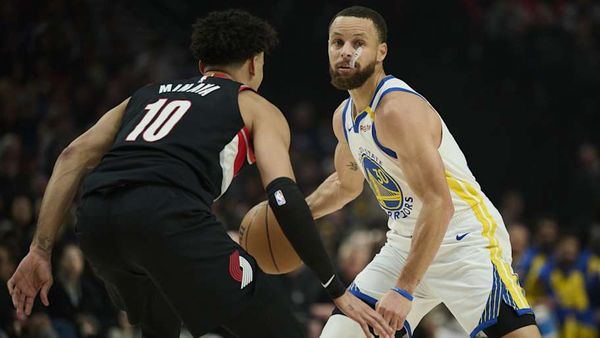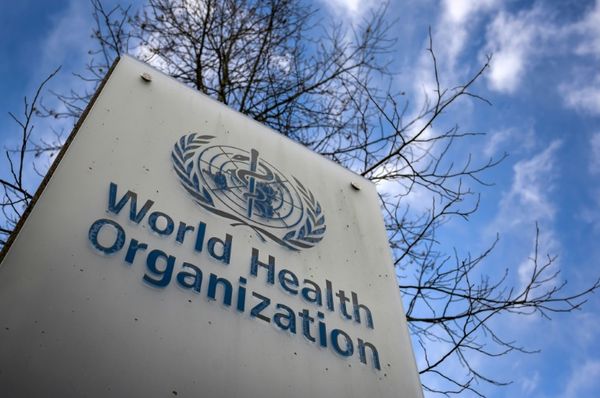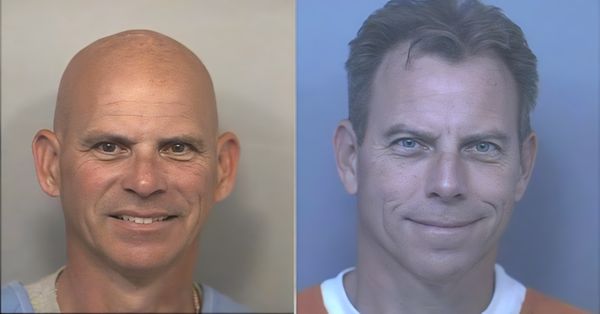
Perhaps you’ve got to be old, like me, to understand just how weird it is for the former federal finance minister Nick Minchin to be booed at a conference of self-styled conservatives for not being rightwing enough.
Minchin is a Howard-era small government rightwinger who made an appearance at the Conservative Political Action Conference (CPAC) Australia conference last weekend. His mistake was to tell attendees the Liberal party didn’t need much changing. Sustained booing ensued.
Minchin suggested everyone calm down. People ignored him. Minchin noted he’d “fought every conservative fight in the Liberal party for 30 years”. Pain persisted. Minchin then told the audience he was not “going to take any rubbish from you” having been in the “trenches” for decades.
CPAC, if you’ve missed it, is a globalised fringe festival for performative reactionaries. You’d ignore it if you could.
But given where the US Republican party finds itself (colonised by the reactionaries) and where the British Tory party finds itself (half-deranged by Brexit and post-pandemic voodoo economics), the whole co-option-by-fringe-festival dynamic on the political centre-right does warrant periodic attention.
A political friend of mine suggested this week that mainstream centre-right politics in Australia is too much of closed shop for such co-option to be a significant threat. He’s smart, so he’s probably right. But the devastating May election result, coupled with the scarcity of Liberal governments at the state level, renders the Liberal party structurally and institutionally weak.
Partisans might cheer at this news, but this isn’t a football match, and the implications could be profound. Lachlan Harris, a former Labor adviser, turned up earlier this year in The Monthly with a mind-focusing observation. Harris said the minor party vote going over 25% had only happened three times since federation, and in the past, when that happened, one of the major parties had either fused with another party or split.
After the 2022 rout, Peter Dutton bears the responsibility of towing his political party back to safety. Dutton didn’t trail his coat at CPAC. Rather than cosying up, Dutton punched up at the circus during one of his interviews on the Murdoch-owned Sky News – which is part of the globalised media conglomerate that drives reactionary right fringe festivals and also speaks to the Liberal party base.
Asked about CPAC’s apparent conclusion that the Liberals had lost their way, Dutton noted there were “a lot of people who offer free advice at the moment” – people who had never formed government, never sat in the big boy’s chairs. People might have “all sorts of theories” about how to regroup after a flogging, but he intended to approach the leadership of his party as a descendant of Robert Menzies and John Howard. The Liberals would win by articulating core values and “calling out Labor’s hypocrisy”, Dutton said.
The Sky host, Chris Kenny, finished by giving the leader an unsolicited stamp of approval, noting Dutton could never be justly accused of being “woke”. The present risk for Dutton isn’t so much woke as wake in fright.
We’ve entered an interesting period. Five months after the election, the prime minister and the opposition leader are past their respective post-contest transitions and cruising into definitional territory.
The CPAC right apparently suspects the Liberals are secret socialists. Moderates were largely routed in May by independents seeking sensible climate action and an integrity commission. But some inside the Liberal party seem to think the response to this is that all remaining moderates should be cancelled. Go figure.
We know who Dutton is. He’s a cultural rightwinger and a national security conservative. His leadership lodestar is Howard rather than Tony Abbott, Malcolm Turnbull or Scott Morrison. Bit of red meat. Bit of pragmatism. Bit of retro. Howard was never loved by voters, but at his peak he was respected, so a default to the Howard template is unsurprising. Abbott was too weird, so got torn down. Turnbull was too progressive, so got torn down. Morrison tried a middle path of standing for nothing at all apart from soundbite managerialism and passive-aggression, and the voters had their say about that in May.
So Dutton has a leadership model. But the collective values the leader referenced on Sky, the values he framed as paving stones on the road back to power, remain works in progress.
Settling what the Liberal party stands for in contemporary times is harder than it looks, because the values are very clearly disputed. Dutton in his opening sorties has paid lip service to the broad church of the Liberal party, but it’s not clear yet whether that lip service will extend to genuine inclusion when it comes to the formulation and articulation of the values.
The party is currently reviewing the reasons for the election defeat in May. The review will either underscore the value of the broad church or erect a signpost for a new direction. What is Dutton to do – wedged between the CPAC circus and the teals? Wither and die, or find a new way to live?
While Dutton regroups, the government accelerates towards its first budget. Anthony Albanese faces a different kind of definitional wedge. The prime minister is squeezed between an election promise and the fiscal recklessness of stage-three tax cuts funded by borrowing.
Let’s speak plainly. Labor agreed to Morrison’s stage-three tax cuts not because that package was good policy (it isn’t – not then, not now) but because of a crisis of political confidence.
The then opposition didn’t think it could win an election on a platform of rolling back income tax cuts, not after losing the 2019 election over a death tax that never existed. Albanese and the shadow cabinet took the small target option and Labor made the case to voters it represented safe change. Predictably, the small target has become a bigger problem.
Albanese is a survivor of the Rudd-Gillard civil war and Labor’s earlier electoral drubbing by Abbott in 2013 over a carbon tax that also never existed. He has set great store on keeping his election promises. Albanese also had a ringside seat when Abbott fatally wounded his own leadership in the first budget he delivered after winning the election in 2013. Abbott’s first budget broke several promises.
Albanese knows the risks, in other words. But he has licensed Jim Chalmers to go out and expand the political space for overhauling the stage-three tax cuts, a pivot the treasurer has been executing for just over a week. With the stage-three flip frenzy in full swing, Albanese took days to appear publicly this week, but a range of Labor players bobbed up expressing concern about the political risks of broken promises.
When the prime minister upped periscope on Friday, he backed in Chalmers. The line was: we haven’t shifted, but we are preparing a responsible budget.
Chalmers is about to go to the US, where all the focus will be on the deteriorating economic outlook. It’s unclear whether a final position will land before he goes or whether Labor will let the hares run through next week. Some cabinet colleagues want a quick resolution, and they might get their wish, but what the current public debate is doing is helping weight the deliberative scales.
If this last point seems a bit opaque, I can explain. If you are going to break an election promise, it is best that voters form an impression there are significant risks associated with keeping it. Labor is trying to shift the debate from death by pre-election deception to the political inoculation zone – when the facts change, smart people change their minds.
Chalmers is a clear communicator, and a bunch of respectable people have helped his efforts to get voters focused on the downside risks and costs of sticking with the status quo this week, from the former Reserve Bank governor Bernie Fraser to the Liberal MP Bridget Archer. But this remains high-wire stuff.
Over a long life in politics, Albanese has undergone a number of definitional transitions. Student activist to factional player in the organisational wing. Backroom to parliament. Backbench to frontbench. Outsider to leader. Tory fighter to safe change. New prime minister who keeps his election promises.
Right now, Albanese is assessing whether the prime minister who keeps promises can also amend them without killing the government.







